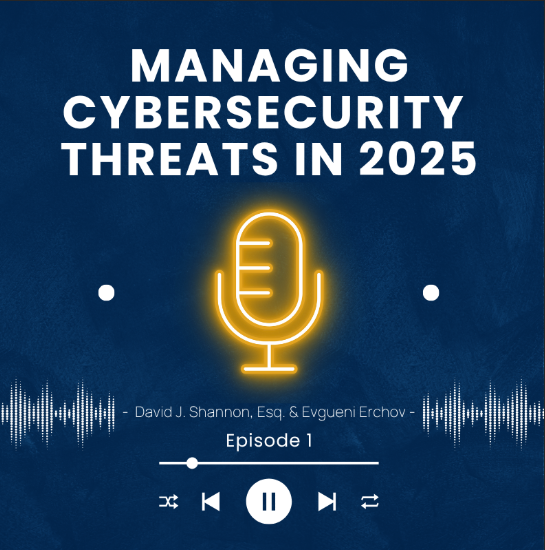October 31, 2022
PLUS Foundation Guest Post: Women Supporting Women / The Power of Alliance Building

Women Supporting Women / The Power of Alliance Building was the topic of a panel presentation at a meeting of the Womens Leadership Network (WLN) Professional Liability Underwriting Society (PLUS) Foundation in Boston on September 27, 2022.
A room full of successful women, including a few men who support women in the workforce, were up early for this 7 am breakfast presentation!
Facilitated by Teresa Milano of Woodruff Sawyer, the panel of experts included Nancy Adams of Mintz, Carrie Kennedy of CNA Insurance, and Renee Scudder of Inspire Leadership, LLC.
Topics of discussion included:
- How can women lift up other women by being collaborative, rather than competitive?
- What is the power of alliance building for women?
- Which leadership styles are successful and why do they matter?
- What are the competencies of outstanding leaders?
- How does tightrope bias affect women?
- What is the imposter syndrome and is it real?
My contribution on the panel was to cite research and offer leadership expertise on the topics that Teresa facilitated. This blog contains some of my contributions, garnered from my research and leadership knowledge.
How can women lift up other women by being collaborative?
Over the course of their careers, some senior-level women have tried to separate themselves from other women. This may be due to many things, including the frequent marginalization of women in business. Limited positions open to women in the C-Suite or at the executive level can lead to competition with other women because of concerns that others will leapfrog over them to higher levels of authority. Have you ever been troubled by this scarcity mentality?
However, many female executives see the antidote to marginalization as the opposite of competition the answer is to do more to support other women.
- Make sure women’s ideas are heard.
- Celebrate women’s accomplishments.
- Encourage women to go for it.
- Give women direct feedback.
- Mentor and sponsor other women.
What is the power of alliance building for women?
Do you benefit from having a network of well-connected peers? Most people do. However, new research has found that women also stand to benefit from having an inner circle of close female contacts. These women are more likely to succeed in landing executive positions with greater authority and higher pay. Interestingly, the research found no similar correlation between the success of men and the composition of their inner circles.
Here are three ways to build a network of support in the workplace:
- Prioritize relationship building and be a resource for others.
- Amplify other women.
- Reframe the concept of networking make it clear that its not mandatory but rather an opportunity.
Which leadership styles are successful and why do they matter?
Amidst a profusion of literature on well-researched leadership styles, I favor and apply the Korn Ferry research. Their studies list the five leadership styles below, each with a different impact and degree of effectiveness. It is important to know that versatility may be helpful. Thats because leadership styles can have a different impact in different situations. For the best outcome, consider which style will be most effective in a specific situation.
- Coaching long-term professional development
- Affiliative people first, task second
- Participative lets decide together
- Directive just do it the way I tell you
- Pacesetting if not right, I will do it myself
What are the competencies of outstanding leaders?
Citing Daniel Goleman’s work and studies, we discussed two of the top competencies of outstanding leaders during our panel discussion self-awareness and self-management.
Recognizing and identifying our own strengths, weaknesses, triggers, and reactions can help us successfully navigate relationships and careers. There are many other competencies of outstanding leaders, but outstanding leaders tend to have these two, and if they do, they also tend to have other competencies as well.
Can you imagine a world if everyone took the time to be self-aware, to understand their impact on others, and then to manage their reactions to better lead or communicate? How wonderful to know that these competencies were discovered through the research of top leaders. Lets apply this knowledge!
How does tightrope bias affect women?
Although women are expected to have feminine qualities, high-status jobs are often seen as requiring masculine qualities. How does this affect you as a woman? You may often find yourself walking a tightrope between masculinity (respected, but not liked) and femininity (liked, but not respected).
Among other attributes, men are expected to be ambitious, direct, assertive, and competitive. But women are expected to be nice, self-effacing, team players. This can force women onto a tightrope, where they try to strike a balance that allows them to be seen both as competent and likable.
Depending on your organizational culture, this of course varies, but it is important to understand this syndrome. If it is real in your work culture, how do you strike the balance between being liked and respected? Or do you choose to forge ahead and be an outcome-oriented leader? Or do you challenge gender bias with confidence?
What is the imposter syndrome and is it real?
Do you have thoughts or feelings of being less talented than other people think you are? Do you feel you aren’t smart enough or that you’re fooling others?
This Harvard Business Review blog wisely points to certain conditions as setting the stage for these feelings:
- Underrepresentation of women
- Uncredited work efforts
- Microaggressions
The HBR authors suggest that we stop calling natural, human tendencies of self-doubt, hesitation, and lack of confidence imposter syndrome that we should instead question the culture, not our confidence, at work.
Remember, you can have thoughts of deficiency about yourself and still perform very well. Most women who fall prey to imposter syndrome are actually quite successful at work despite their self-perceived fraudulence. SO, KEEP GOING! It was an honor to be a guest on the panel at the WLN PLUS Foundation meeting. This professional membership group brings relevant content to its members, offering open discussion, insights, and tools for success.
Meet the Author

Renee Scudder works with individuals to help them become influential, multidimensional leaders to improve results and create engaging teams.
To learn more about Renee’s training, professional speaking, and consulting, go to Inspire Leadership Training, or email Renee directly at renee@reneescudder.com.
News Type
PLUS Blog
Topic
Professional Liability (PL) Insurance
Contribute to
PLUS Blog
Contribute your thoughts to the PLUS Membership consisting of 45,000+ Professional Liability Practitioners.
Related Podcasts

Managing Cybersecurity Threats in 2025 Episode 1
In this engaging episode of the PLUS Podcast, our host, David Shannon,…
Related Articles

How Insurance Agents Can Reduce Liability Risk: Lessons from Insurance Agent E&O
In this episode of the Insurance Agent E&O, Dana Gittleman and Jeremy Zacharias of…

Navigating EPL Trends Across North America: Key Risks and Insights for 2025 Webinar Recap
Employment Practices Liability (EPL) risks are becoming increasingly complex as workplace norms…

Mitigating the Risks of Reductions in Force: Lessons from The Employment Law Counselor
In the latest episode of The Employment Law Counselor, hosts Victoria Fuller…
